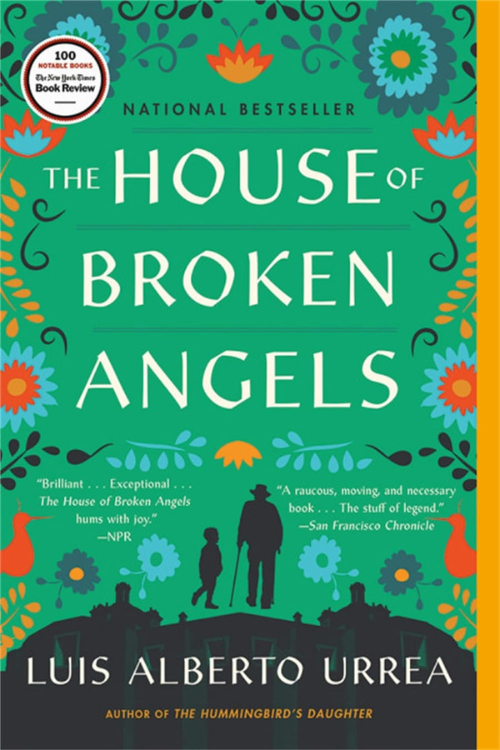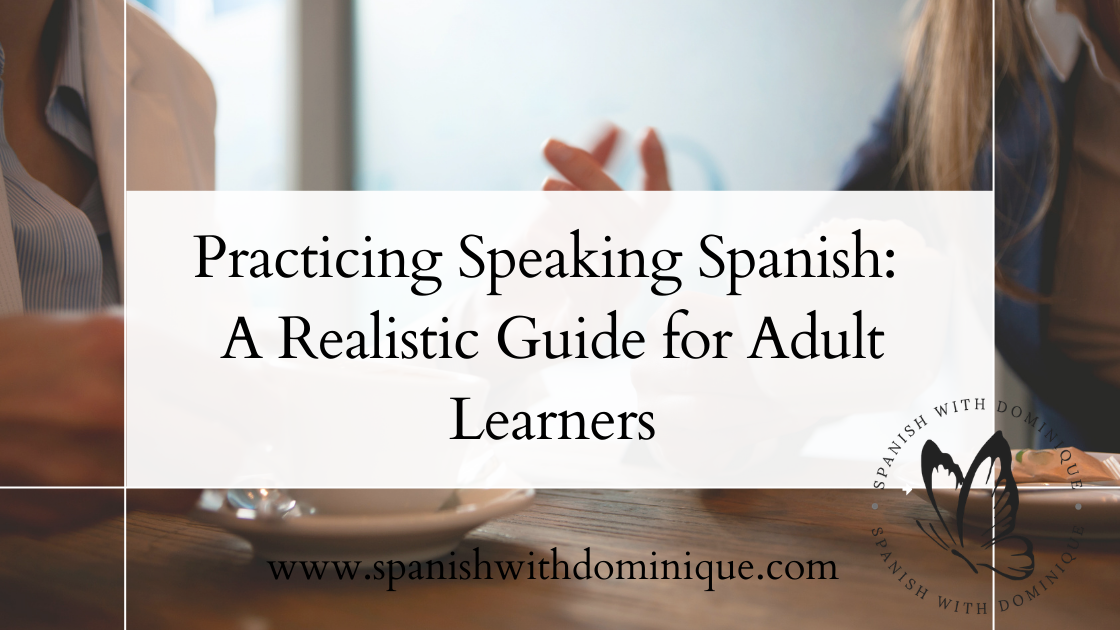7 Must-Read Novels to Help You Understand Mexican Culture
When people ask me about the best novels to read about Mexico, I always get excited. Because there’s nothing better than talking about great books about a place you love with other book lovers.
Why read novels to understand Mexican culture? Research shows that you’ll connect more deeply with historical perspectives if you read fiction books.
And what if you already read books in Spanish?
I’ve watched adults improve their fluency and speak up in conversations during the Spanish book immersion programs I run. And I swear by reading in Spanish and the way it helps you have better conversations.
But I still recommend reading fiction to learn about Mexican culture in English. Here’s why:
Read in English, and you’ll learn more about Mexican culture than you would in Spanish. You won’t stop and pick up a dictionary. You’ll just be engulfed in the story.
Language and culture go hand in hand. Understand the culture better, and you’ll understand conversations better too.
That brings me to one last reason you should read fiction about Mexico. It’s something I’ve learned in my travels:
You can be fluent in a language and still feel lonely in a culture.
I felt that loneliness when I lived in Mexico City. My Spanish improved so much during that period, but…
People in Mexico share a cultural understanding that fluency alone can’t help you reach.
I realized I had to catch up on generations of culture and history to feel a real connection with people.
And that is where novels come in.
Read on for the best books to read to experience Mexican culture and history firsthand. These are my book recommendations for you: fresh, new, contemporary novels to add to your bookshelf.
Because they’re the kinds of books you can’t put down. And because they’ll help you catch up on generations of history and culture in one good story.
7 Novels to Help You Connect with Mexican Culture
1. More Than You’ll Ever Know by Katie Gutierrez
Let’s start with a bestseller I just could not put it down. Not only did I read it, but I listened to the audiobook--and I loved it.
There’s a Spanish version, of course. But I chose to read it in English. Why?
I wanted to experience the juxtaposition of culture between present-day Loredo, Texas (a border town not too far from where I live in Austin) and 1980s Mexico City.
The book broadened my understanding of a city I love and deepened my connection with Spanish.
And yes, I’ve read nonfiction books about Mexico City and studied that time period. But traveling there as you read a novel is a completely different experience.
Read More Than You’ll Ever Know, and you’ll travel back to Mexico City in the 1980s. You’ll experience currency devaluations, recession, and the fallout of the notorious Mexico City earthquake--firsthand.
And, of course, the story is terrific.
Lore Rivera is a woman who lives two lives: one in Mexico City and another in Texas.
She’s married to two men and has two families. Yep, you guessed it, there is no way that can end well.
A terrible crime ensues. And that’s only the beginning of the story!
Decades later, true crime writer Cassie Bowman arrives on the scene to untangle the threads of this story by interviewing Lore.
Read this one, and you’ll be searching for answers as the plot unfolds.
2. The Murmur of Bees by Sofía Segovia
What would you do if you discovered a baby abandoned under a bridge--and guarded by a swarm of bees?
In this book, you’ll unwrap the secrets of a mystery baby’s unique gifts against a historical backdrop that’s like a crash course in Mexican culture.
Sofía Segovia has a knack for writing from the perspective of her characters in a way that makes you feel like you’re along for the ride.
You’ll be right there as baby Simononpio’s adoptive family navigates the Mexican Revolution and the Spanish flu. You’ll know what it’s like to grow up in a hacienda full of siblings--and to lose so many of them.
Segovia's weaving of magical realism into the novel will help you make sense of the tragedy and hardship of this period and even find wonder there. Although Segovia originally penned this book in Spanish, the English translation is absolutely exquisite, so I couldn't pass up including it in this list!
But if you read books in Spanish, this might be a fun one to discover.
This bestselling novel also happens to be one of the best books about the Mexican Revolution you’ll find. Read it, and you’ll come away with an understanding of Mexican culture that you just can’t get from a history book.
3. The House of Broken Angels by Luis Alberto Urrea
Crack open this book by Pulitzer Prize finalist Luis Alberto Urrea and enter the hustle and bustle of the large Mexican-American family.
You’ll feel like you’re right there with the main character, Big Angel, who is late to his own mother’s funeral.
He also happens to be dying, yet The House of Broken Angles is acclaimed for delivering joy.
Big Angel’s bad diagnosis, his flawed, funny, and poignant family bonds, and his voice and sense of humor will keep you turning the pages.
Did I mention that this is also one of the best books on Mexican culture you can pick up?
If you’re from a State like California that borders Mexico, you’ll learn the incredible back story--not just of Big Angel and his family, but of people you may work with, your friends, and neighbors.
What was it like for families to move back and forth between Mexico and California between the Mexican Revolution and the First World War?
What was it like to grow up in Los Angeles when Mexican boys couldn’t swim in public pools?
This book is like having an old friend who really knows how to tell a story--and who makes you care about what life was like in past generations on both sides of the border.
4. Woman of Light by Kali Fajardo-Astine
A malicious mob runs Diego, a snake charmer and factory worker, out of town, leaving his younger sister, Luz “Little Light” Lopez, to make her way in depression-era Denver. And that’s when her visions begin.
Luz, the young “seer” and laundress, begins visiting the Indigenous Mexican homeland of her ancestors during her moments of clairvoyance. Her gift helps her uncover the lost tales of her family, creating a rich plot full of complex characters.
You’ll find yourself moving from the “Wild West” during the Great Depression to a more ancient and nearly timeless Mexico. This is one of those books that helps you pick up generations of understanding and history in one compelling read.
Despite the treacherous and painful 1930s Denver setting and the challenges the main characters face, the plot is rich with family, connection, community, and hope. If you’re a fan of historical fiction, check this one out.
5. Living Beyond Borders: Growing Up Mexican in America by Margarita Longoria
If you’ve ever read great young adult fiction, you know simple words can deliver profound meaning.
In this acclaimed mixed-media collection, you’ll discover short stories, poetry, personal essays, and even comics. And all of them will teach you something about Mexican culture.
The pieces in this engaging collection will wrap you in deep emotions, steep you in surprising and sometimes heartbreaking stories, or just fill you with hope.
Read it, and you’ll share experiences like crossing borders and what it’s like to be “from” two places: Mexico and the US.
For a taste of the way these stories make culture a personal experience, check out this excerpt by the Anthology’s curator, Margarita Longoria.
I love that Longoria is a fellow Texan and bookworm. She’s also a book blogger, an award-winning high school librarian, and the founder of the Border Book Bash: Celebrating Teens and Tweens of the Rio Grande Valley.
So, if you’d like to learn more about Mexican culture while celebrating local librarians and authors through short, engaging bursts of writing, this might be just the book for you.
6. Mexican Gothic by Silvia Moreno-Garcia
Ok, it may have been a while since you’ve picked up a true gothic novel like Frankenstein. But don’t be too quick to put this one back on the shelf.
Mexican Gothic starts with the predictable ambiance of a gothic story but quickly breaks rank with the genre to surprise you! In fact, this review in Slate describes the novel as taking a mid-story turn in the direction of “into the territory of a Guillermo del Toro movie.”
It also won the Locus Award for Best Horror Novel and was nominated for the Hugo and Bram Stoker Awards.
What will this book teach you about Mexican culture? Author Moreno-Garcia chose 1950s Mexico as a setting to explore some of the historical influences of colonialism, which adds to the depth and uniqueness of the novel.
You’ll discover heavy intercultural forces pulling away under the horror story based on Mexico’s history. The culture runs so deep in this book that it’s really a part of the plot.
So does a surprising gothic novel with a cinematic twist and a knack for teleporting you into the “baroque” and “hypnotic” sound like something you might try out--at least once in your life?
If you’re still not sure (or just intrigued), pop over to Oprah Daily for an excerpt of Mexican Gothic by prize-winning novelist Moreno-Garcia.
7. Caramelo by Sandra Cisneros
Imagine yourself packed into a car with the Reyes family on a dusty road trip from Chicago to Mexico City. It’s time for your yearly visit to your Awful Grandmother and Little Grandfather in Mexico City.
Uncle Fatso packs in an improbable number of trinkets from the States to sell on the road to pay for the trip. The mariachi sings out the open window, and you’re off to Mexico.
This is what it’s like to ride along young Celaya in this novel, set partly on the road and partly in Mexico City. And author Sandra Cisneros knows how to make a raucous family history heartbreaking and humorous.
Cisneros is also an award-winning poet and winner of the American Book Award (among others). And it shows up in her writing.
You can hear the musicality and the Spanish coming through in the voices of her characters. For a taste of the tone and style, read an excerpt from the novel here.
As you return with the family on multiple trips to Mexico City, you’ll learn the meaning behind the book’s title and the story behind why Grandmother is so awful.
Looking back, Caramelo strikes me as one of the quirkiest books about Mexican-American culture I’ve read. But you won’t notice that while you’re reading. It just feels like you’re packed into that family car headed south.
📚 Find your copy of the book here.
Takeaways:
There you have it: a book list I’ve hand-picked for you with the best novels to read about Mexico. What happens next is your call.
Will you pick up one of the books and find yourself swept away by the story and immersed in Mexican culture and history?
If so, you’ll discover that reading novels in English is the fastest, most direct way to tap into generations of cultural understanding and connect with the culture.
That way, when you can finally have great conversations with Spanish speakers from Mexico, you won’t find yourself wondering if you’ve missed something everyone else knows about. You’ll feel like you’re genuinely a part of the conversation--and the culture.
So grab a great book, curl up for a relaxing read--and get ready to tap into generations of history and culture.














